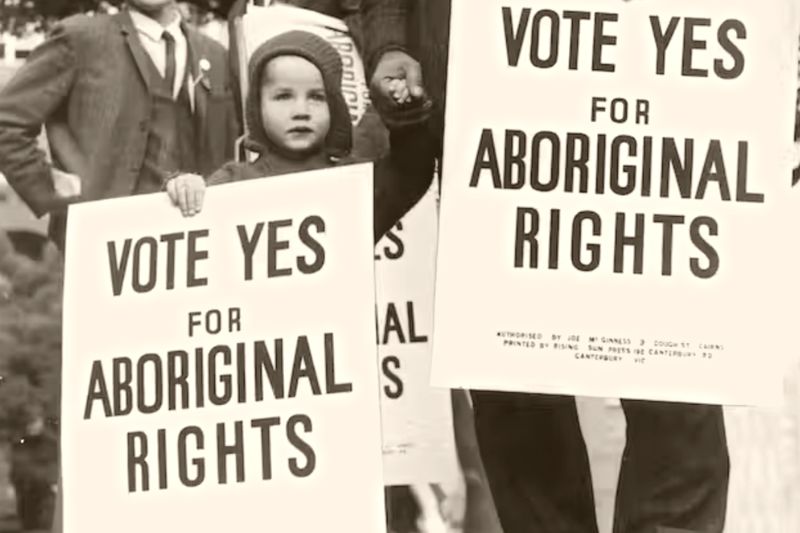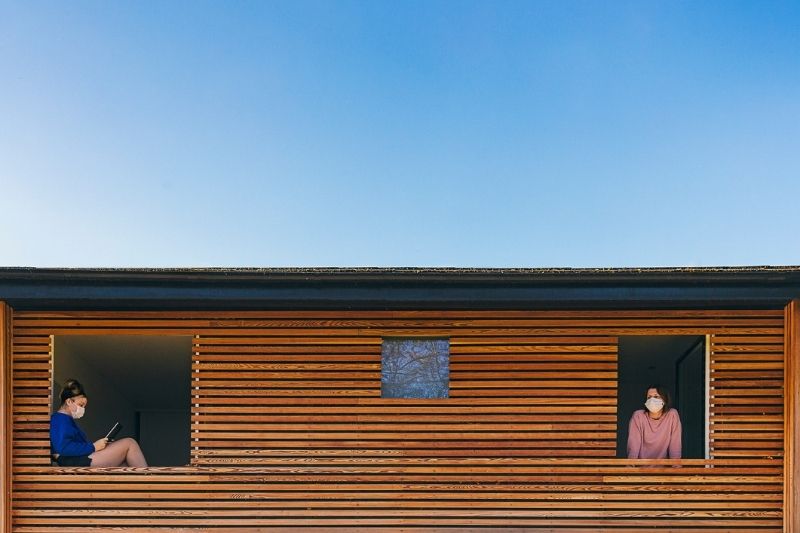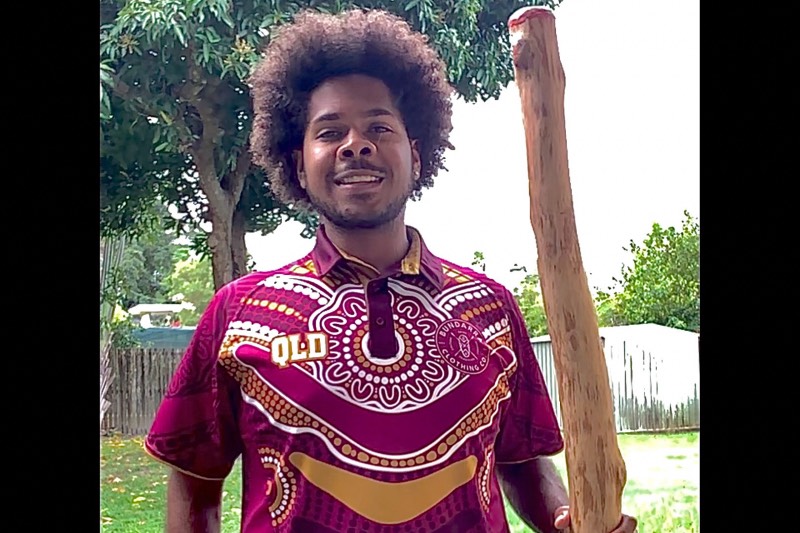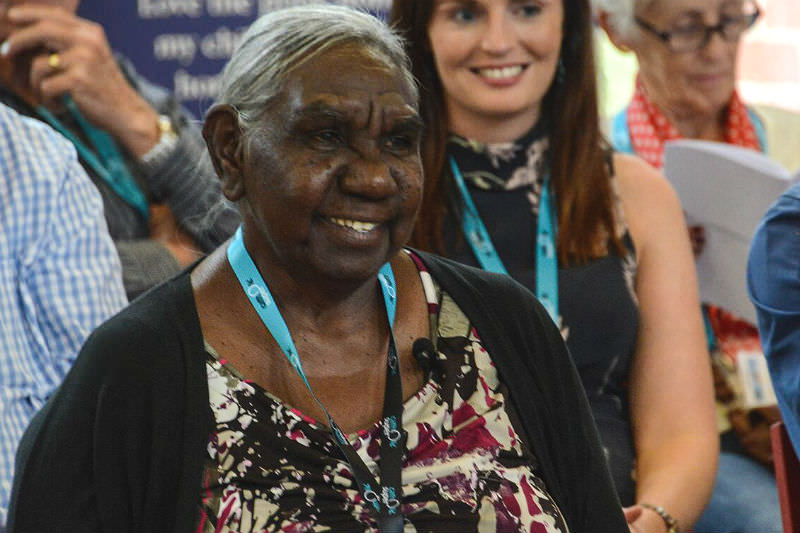Keywords: Miriam-Rose Ungunmerr-Baumann
-

AUSTRALIA
- Frank Brennan
- 05 June 2023
19 Comments
The wording of the proposed change to the Australian Constitution to enshrine a First Nations Voice might not be perfect. But whatever the imperfections and the risk of future complications, it is high time that Australia’s First Peoples were recognised in the Constitution in a manner sought and approved by a broad cross-section of Indigenous leaders.
READ MORE
-

RELIGION
- Beth Doherty
- 01 July 2022
6 Comments
Debate between more traditionalist Catholics and those who want to see reforms more fully implemented has become increasingly heated in the lead-up to the Plenary Council. One thing that could prevent a serious split from happening is the simple act of talking — and listening — to one another.
READ MORE 
-

FAITH DOING JUSTICE
The question of reconciliation in the Church is particularly pressing, given 2021 marks the 250th anniversary of the arrival of Christianity in Australia, and the 150th anniversary of the arrival of Christianity to the Torres Strait. Yet many First Australians recognise that the Spirit of God was poured out onto the original inhabitants of this great Southern Land many, many thousands of years prior.
READ MORE 
-

PODCAST
We live in a world full of constant sound and movement. What do we miss when we fail to stop and listen? Miriam-Rose Ungunmerr is an Aboriginal elder and educator from Nauiyu (Daly River) in the Northern Territory. She is known for spreading the concept of daddiri, which is a dimension of Aboriginal spirituality.
READ MORE
-

MARGARET DOOLEY AWARD
- Evan Ellis
- 10 January 2013
4 Comments
St Benedict of Nursia knew about living in a dying world. He was born 25 years after the Vandals sacked Rome and died months after the Ostrogoths had their turn. He watched as old certainties went up in flame. As existing institutions were hollowed out or winnowed completely, Benedict started a revolution. Wednesday 12 September
READ MORE 
-

MARGARET DOOLEY AWARD
- Evan Ellis
- 12 September 2012
12 Comments
St Benedict of Nursia knew about living in a dying world. He was born 25 years after the Vandals sacked Rome and died months after the Ostrogoths had their turn. He watched as old certainties went up in flame. As existing institutions were hollowed out or winnowed completely, Benedict started a revolution.
READ MORE 